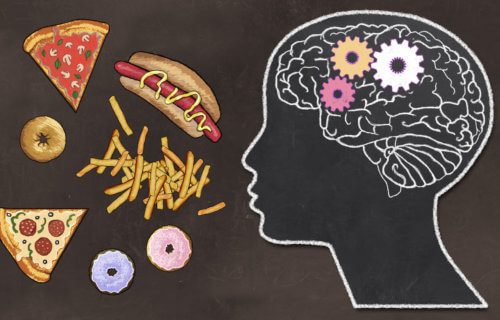UTRECHT, Netherlands — The protein leptin has long been studied for its role in weight loss. Released by fat cells, it acts as an appetite-suppressing hormone. Previous research has shown the effects of leptin on the hypothalamus, however, the specific mechanism by which the hormone curbs hunger was still unknown — until now.
A recent study led by Azar Omrani, a neuroscientist at the University Medical Center Utrecht, reveals the intricate pathway between leptin and the brain regions involved in regulating appetite. Omrani and his team studied the effect of leptin in mice.
Leptin not only helps relay signals for hunger suppression but also reduces the feeling of satisfaction that the brain produces when a person eats. To do so, leptin reduces the activity of dopamine, the feel-good hormone. Dopamine is a key component of the reward system which is usually triggered when a person feels ‘full’. Researchers say that in the absence of leptin, mice quickly gain weight due to overeating – further demonstrating leptin’s effect on hunger control.
“This process is shaped by communication between bodily fat storages (via leptin) and the brain’s dopamine reward system. This leptin-dopamine axis is critically important for body weight control, but its modes of action were not well understood,” says Roger Adan, lead author of the study, in a statement. Adan is a neuroscientist with the university’s Department of Translational Neuroscience.
The team used several techniques, such as chemogenetics and optogenetics, to determine the leptin pathway. “Although leptin receptors are present on [some] dopamine neurons that signal food reward, we discovered that leptin receptors are also present on inhibitory neurons that more strongly regulate the activity of dopamine neurons. Some of these inhibitory neurons suppressed food-seeking when [animals were] hungry, whereas others [did so] only when [animals were] in a sated state,” adds Professor Adan.
Leptin is a vital link between cell metabolism and energy production and the brain. “It turns out that leptin plays key modulatory roles in an elegant circuit that unites midbrain and limbic reward circuitry. By inhibiting hypothalamic neurons and ultimately suppressing the activity of dopamine neurons in the midbrain that signal reward and promote feeding, leptin reduces food intake in animals under conditions when caloric intake has exceeded energy use,” says Dr. Krystal.
The team plans to hone in on dopamine neurons in an effort to regulate their role in this novel pathway for future therapeutics. “Targeting these neurons may provide a new avenue for the treatment of anorexia nervosa and to support dieting in people with obesity,” adds Professor Adan.
This study is published in Biological Psychiatry.
